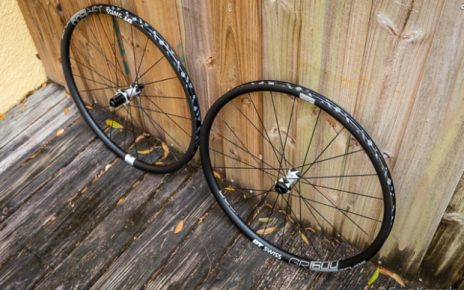It’s a new season, my 39th as a licensed racer and my 34th racing cyclocross. The most attractive element of cyclocross is that this unique segment of bike racing allows me to honor that part of me that’s a learner.
To be a proficient ’cross rider, we need to recognize that being strong, being able to generate a ton of watts, is only part of what makes someone good. ’Cross teaches you to be humble, strategic and to laugh at yourself. It’s appropriate to be thinking about this now at the start of the season as we grapple with the fact that even if we focused on cyclocross skills all summer long, there are still so many gaps to be filled.
There are many things I’ve been thinking about this past summer that it’s difficult to know where to begin. Starting with this question seems to be good: As you think back on last season and the coming one, which might be more effective in improving your results this year, worrying or wondering and what’s the difference?
Will worrying about the results in the upcoming races move you to the podium, or at least improve your results? Probably not. Worry will only tighten muscles and slow reactions.
Here’s a novel idea; rather than allowing your thoughts to drift into the world of worry, steer those thoughts towards wondering.
What if, rather than worrying about your results, you tweaked that? Instead of fearing that you might not do as well as you’d like, what if you explored this wondering: What I can do to maximize my chances of riding and placing well?
Would that alter the way you race and your results? I’m going to bet that it will make a world of difference.
Think about it. The answer when you worry about results, there is no answer. You’re merely putting yourself at the mercy of the Universe and how it might want to play with your emotions.
Think about all of the things that happen in a ’cross race that are out of your control. Weather, the other riders’ skills, the changing course conditions to name just a few. If you approach your racing from the position of wondering, you begin to build a list of things that are in your control in order to maximize your chances.
It could be your starts, your transitions on and off the bike, your cornering, diet, rest … but when you think about maximizing your potential you then have the opportunity to put together a plan.
This year my racing age is 70. I’m at the beginning of a new category. And in that position, I have an opportunity to ride well and maybe even enjoy a good result at Nationals in Tacoma. I could worry about everything that might get in my way. There’s mud, then there’s mud, or I can worry about the … mud.
On the other hand, I could wonder about what I need to improve on in order to maximize my chances. I could practice mud riding, but unfortunately, that’s difficult in dry Colorado. Then the next wondering might be; what will it take for me to ride with power, balance and effectiveness in the mud? That answer gives me the opportunity to develop a list of things that I know I need to work on.

Lee Waldman at the 2018 Louisville Cyclocross Masters Nationals. © Z. Schuster / Cyclocross Magazine
We all have weaknesses. For me, the beauty of sport, and of ’cross in particular, is that there are so many aspects to it. There’s the physical side, of course, but then there’s also the mental component. You might be the strongest rider toeing the line, but if that’s all you’ve got, you’re a one-trick pony. Technique and course savvy play an equal part in creating a complete cyclocross racer. Which, again, brings us back to wondering.
Yes, you need to be strong so first you need to answer the question: what in my training might I change or improve on in order to meet my goals? But after you’ve started down that road, other questions pop up: 1) Where are the weaknesses in my technique that I need to work on? 2) How can I become more proficient at reading a course so that I choose the best lines and improve my chances? And on and on, ad infinitum.
There are always new things to wonder about, again highlighting the all-encompassing draw of ’cross for me, but at this point in the season, I think that these are three areas we can all profit from if we’ll take the time to explore them.
Now I need to rest. As for you, go ride (or race) your bike.



